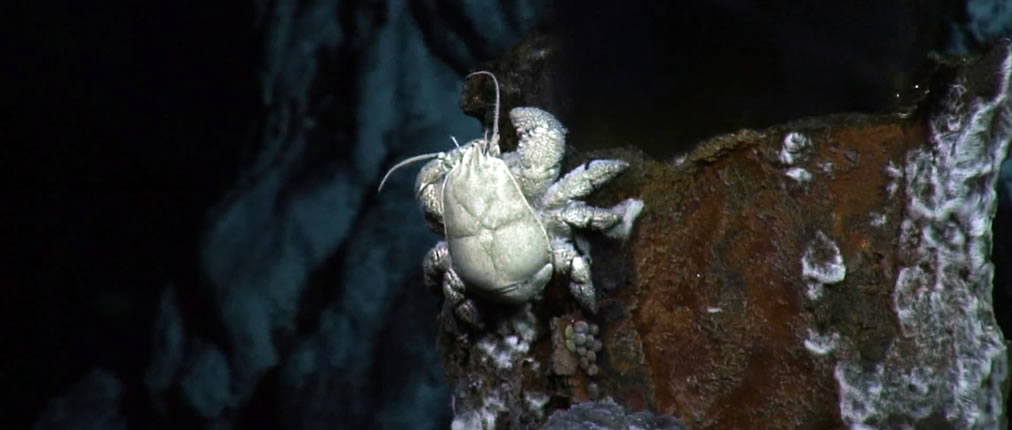
Thanks to deep-diving underwater vehicles exploring a newly-found world of animals living on the ocean floor, researchers at the University have shed light on the private life of a new species of deep-sea crab, previously nicknamed the ‘Hoff’ crab because of its hairy chest.
Male and female Hoff crabs lead largely separate lives at volcanic vents 1.5 miles (2.4 km) deep on the ocean floor near Antarctica, because of the conflicting demands of feeding and raising young among the sexes. At the base of the vents, smaller males mix with females in piles, many crabs deep, to mate. The females then crawl away from the crowd and the warm mineral-rich fluids emanating from the seafloor, which can be toxic to their young. Males, meanwhile, climb up the mineral spires to take advantage of the warmth and conditions best suited for growing bacteria on their hairy chests. Study co-author Dr Jon Copley says:
“Deep-sea vents are island-like habitats on the seafloor, and discoveries like these show that our exploration of the life that thrives around them has only just begun.”


